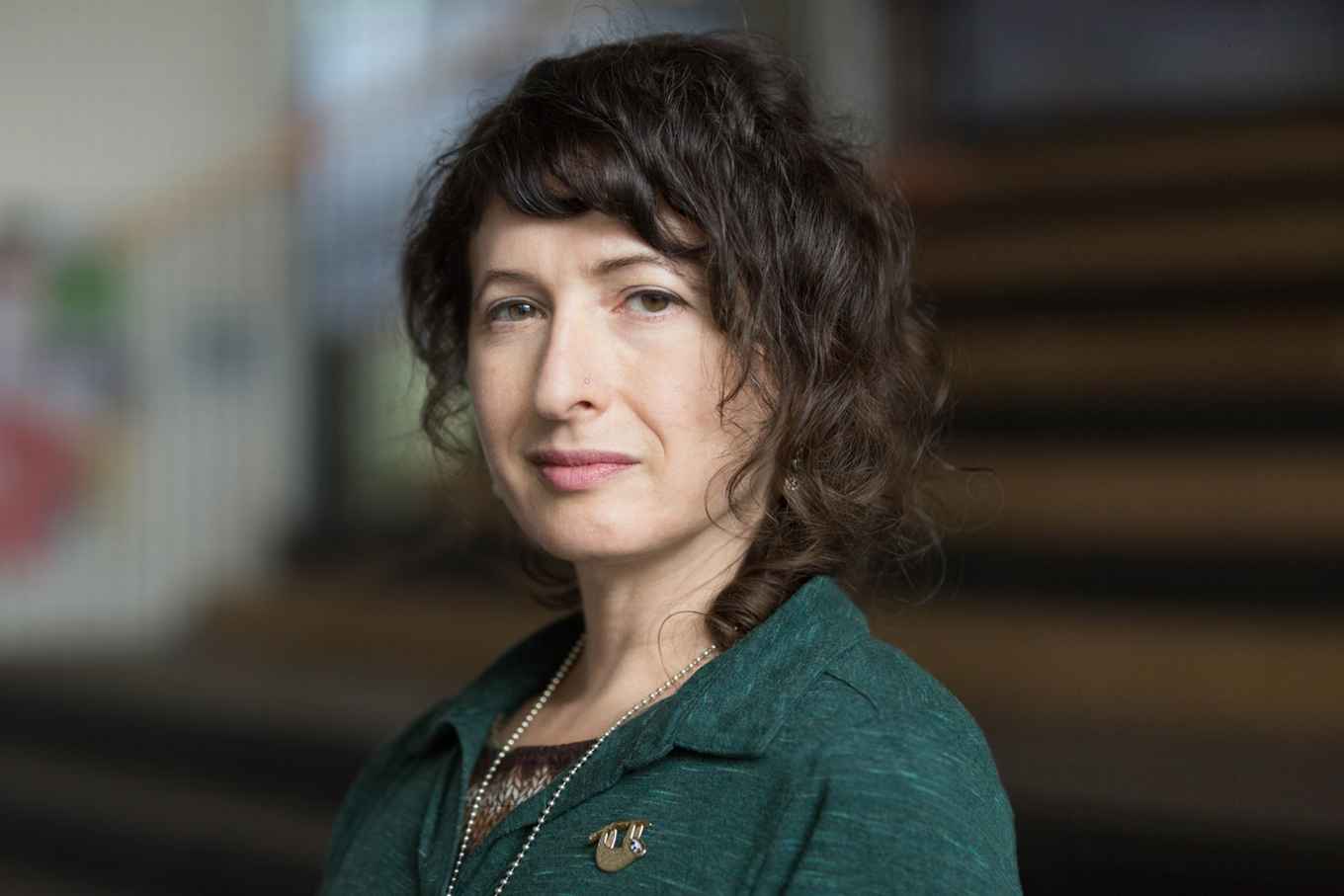Sera Markoff, professor of Theoretical High-Energy Astrophysics
24 mei 2017

Gravity in action
Sera Markoff specialises in the study of accretion — the gravitational capture of material — around compact objects like black holes, and investigates how that energy is processed and released into a variety of forms, including extreme outflows and radiation. Markoff is particularly interested in understanding the details of how relativistic, magnetised fluids behave in strong gravity, resulting in the launching of ‘jets’ of plasma at nearly light speed that both accelerate high-energy particles as well as drastically impact their environment. She has helped establish the theory of how this physics translates over a factor of millions in size, from stellar-mass black holes up to supermassive black holes living in the centres of galaxies.
As professor at the UvA, Markoff will focus on how the macroscopic properties of the magnetised plasma couple to the microphysics of particle acceleration and light production – a fundamental missing piece of the puzzle necessary for correctly interpreting data from facilities in space and on the ground. Her research connects to larger questions on galaxy evolution and cosmology as well as on astroparticle physics, and thereby straddles the research directions of both API and GRAPPA. Markoff leads a research group encompassing both observational and theoretical methods, most recently including large computer simulations.
Education innovator
Markoff employed a variety of teaching techniques in her courses well before the concept of ‘blended learning’ made inroads at the university. She introduced voting machines to the Faculty of Science by using them in her BSc course ‘Introduction to Cosmology’, which was one of the highest rated courses in the Physics and Astronomy programme. In addition, she also helped pilot the use of iPads instead of a board in her MSc course ‘High-Energy Astrophysics’. As director of the MSc programme in Astronomy and Astrophysics, Markoff was involved with revamping the curriculum and creating the joint MSc in Physics and Astronomy, in which she also helped develop the two-year GRAPPA track. She plans to develop several new courses in the coming years, including a course on Order of Magnitude Physics to help students better train their intuition. Markoff also conducts outreach projects with local school children in the Indische Buurt.
About Markoff
Following her PhD in Theoretical Astrophysics from the University of Arizona (USA) in 2000, Sera held a Humboldt Research Fellowship at the Max Planck Institute for Radio Astronomy (Germany) and a National Science Foundation Astronomy & Astrophysics Postdoctoral Fellowship at the Massachusetts Institute of Technology (MIT - USA). In 2006, Markoff joined the UvA as assistant professor and in 2008 was appointed as associate professor. She is also associated faculty within the GRAPPA center of excellence, which she helped found in 2012. Markoff created the Women in the FNWI network along with Prof. Marian Jöels in 2007, and serves as a member of the Beta Plus Foundation.
During her UvA tenure, she has received several NWO Vrije Competitie grants, an NWO Vidi grant ‘Understanding the Physics of Black Hole Jets and Accretion States from Stellar to Galactic Scales’ (2007) and a Vici grant ‘From Micro- to Mega-Scales: Understanding How Black Holes Shape the Local Universe’ (2015). She also co-coordinated an EU Marie Curie Initial Training Network ‘Black Hole Universe' (2008). In 2013, she was a Visiting Professor at University of Paris Diderot VII and in 2015 a Tinsley Centennial Visiting Professor at University of Texas (Austin). In 2014, Markoff was named a Fellow of the American Physical Society. Markoff serves as a Science Working Group coordinator for the next generation Very High Energy Gamma-ray facility CTA, and serves on the Science Council of the Event Horizon Telescope.